art | research | about | media | sustainability
Unraveling trauma and mental illness through a dialogue between historical and contemporary perspectives.
Drawing from Michel Foucault, those in positions of ‘expert’—i.e., doctors, playwrights, and religious leaders—are the sole authorities in the field. The ones who exert power also render the representations on behalf of those with mental illnesses. Foucault stated that “knowledge is not for knowing: knowledge is for cutting.”
Perhaps that is where my art emerges. I see the dichotomy of this struggle to counteract the dominant narratives in both historic and modern discourses. Through my artistic investigation, I examine the lived experiences of well-being from an insider perspective.
![]()
Zlatar. (2023). [The Males Gaze On.] [acrylic, 4 x 6 inches].
Folger Institute: Artist Research Fellowship
Zlatar. (2022). [series: Insanity Plea] [acrylic, 4 x 6 inches, 5 pieces].
The Folger Institute Artist Research Fellowship provided significant primary academic research alongside ample support for my artist production which examined the cross-cultural and historic narratives of mental illness. Upon analysis, there were immense similarities in terms of who is creating the dominant narratives. Rather than authoritative figures leading and dictating what it is like to experience an illness, those with that lived-in experience are the ones who have a depth of insight to contribute to the discourse. My art aims to juxtapose this power construct, through embodied understanding for vulnerable individuals.
‘where can we go when our unwell bodies are not our own?’ - a. zlatar
![]()
![]()
![]()
![]()
Zlatar. (2024). [series: lost bodies] [acrylic, 4 x 6 inches, 6 pieces].
![]()
![]()
Zlatar. (2024). [series: my memories are coming for me] [acrylic, 4 x 6 inches, 10 pieces].
series of 20 works. acrylic. 6x4” 2021-2022.
Whether ungendering is a form of protection against the perils of the external world or a way for internal refuge. Those with eating disorders seek the comfort of controlling their bodies. It may be a flawed attempt to exert some sort of agency in this world, but it should be noted. When the body has become violated perhaps the only way to cope is to build walls and protect one's self. It is not something that is inherently positive, but it helps people survive; it provides refuge. These works explore this concept of asylum through the body.
![]()
![]()
![]()
![]()
asylum for the unwell
Unraveling trauma and mental illness through a dialogue between historical and contemporary perspectives.
Drawing from Michel Foucault, those in positions of ‘expert’—i.e., doctors, playwrights, and religious leaders—are the sole authorities in the field. The ones who exert power also render the representations on behalf of those with mental illnesses. Foucault stated that “knowledge is not for knowing: knowledge is for cutting.”
Perhaps that is where my art emerges. I see the dichotomy of this struggle to counteract the dominant narratives in both historic and modern discourses. Through my artistic investigation, I examine the lived experiences of well-being from an insider perspective.
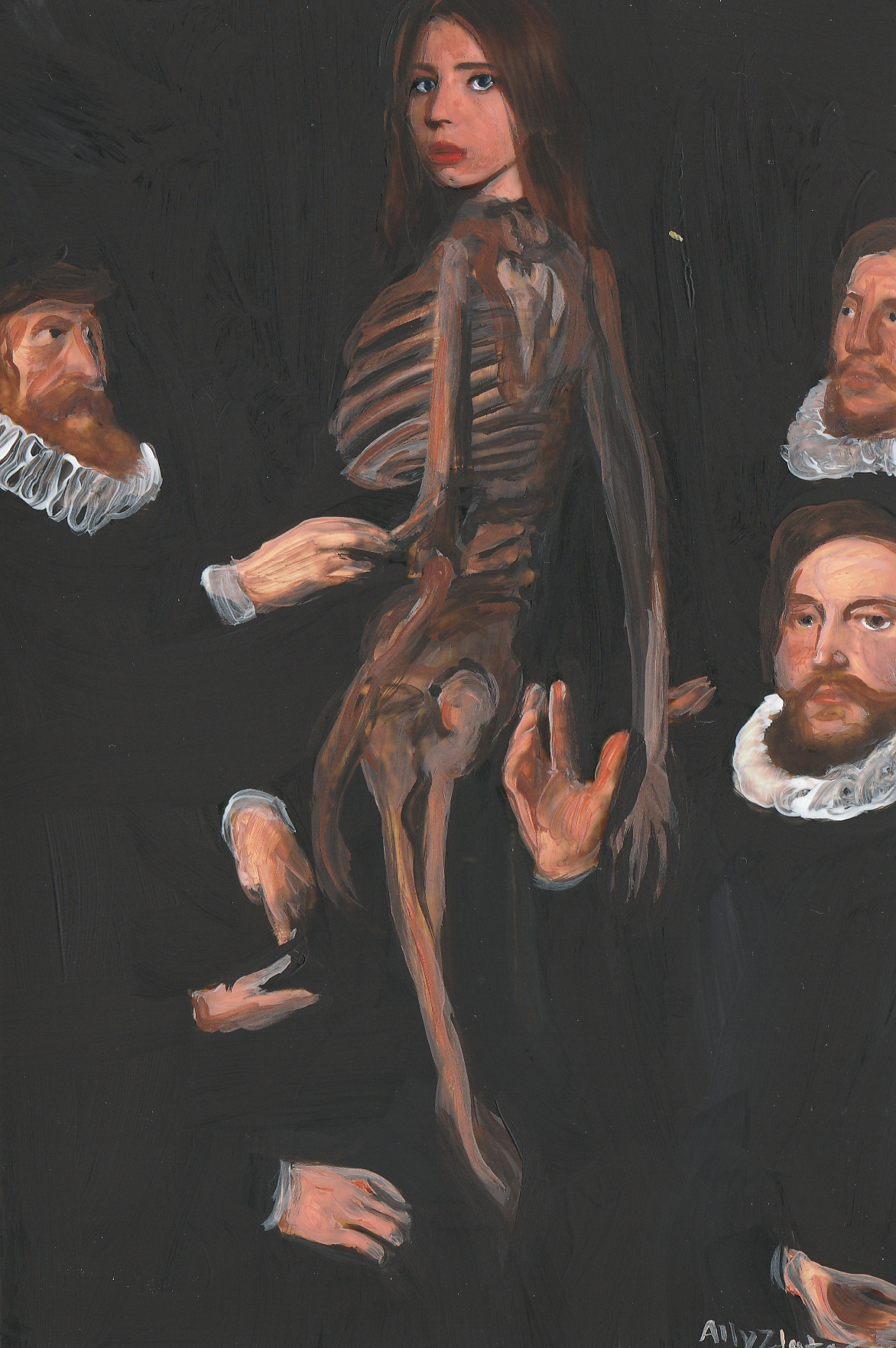
Zlatar. (2023). [The Males Gaze On.] [acrylic, 4 x 6 inches].
Folger Institute: Artist Research Fellowship
Zlatar. (2022). [series: Insanity Plea] [acrylic, 4 x 6 inches, 5 pieces].
The Folger Institute Artist Research Fellowship provided significant primary academic research alongside ample support for my artist production which examined the cross-cultural and historic narratives of mental illness. Upon analysis, there were immense similarities in terms of who is creating the dominant narratives. Rather than authoritative figures leading and dictating what it is like to experience an illness, those with that lived-in experience are the ones who have a depth of insight to contribute to the discourse. My art aims to juxtapose this power construct, through embodied understanding for vulnerable individuals.
‘where can we go when our unwell bodies are not our own?’ - a. zlatar



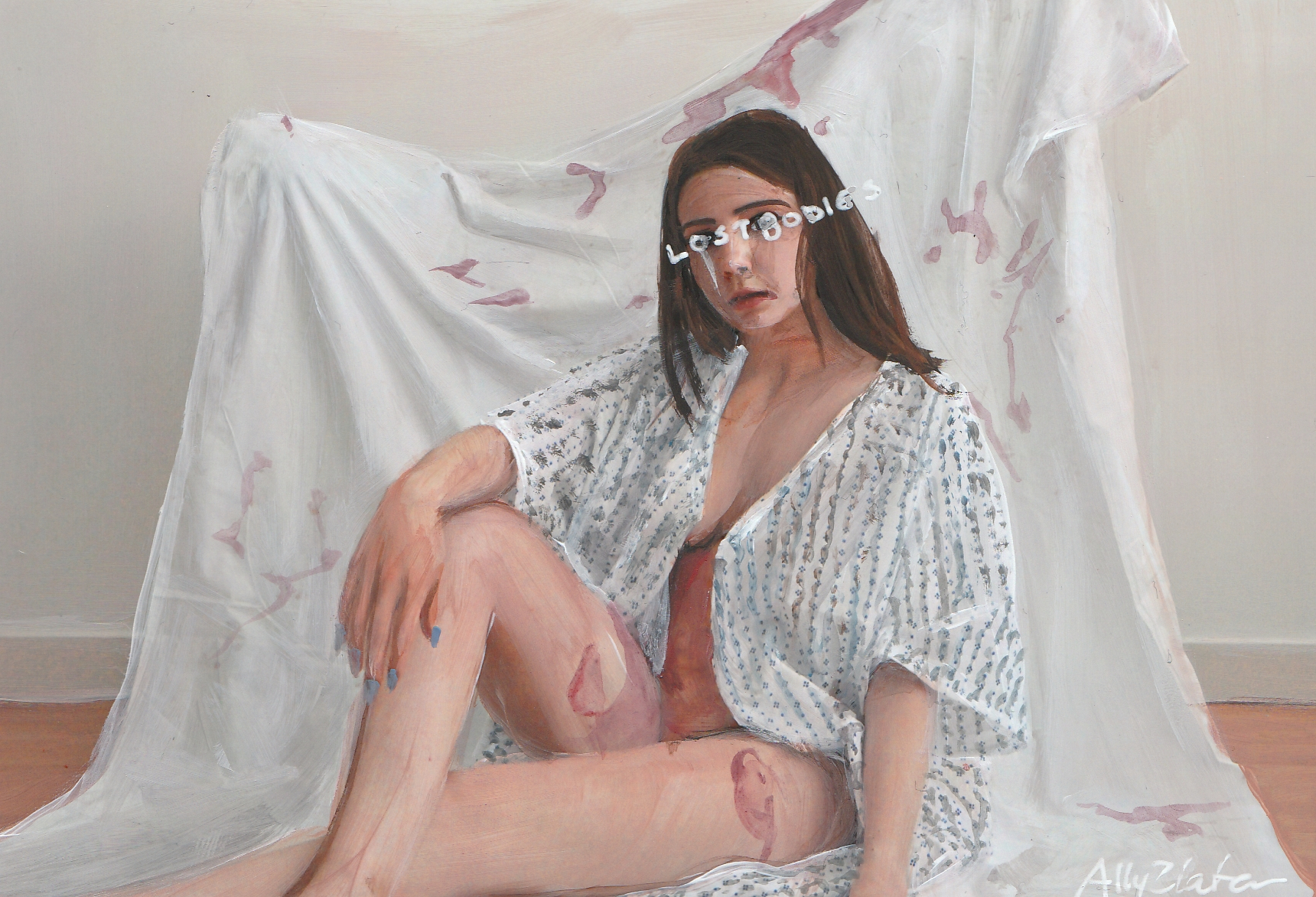
Zlatar. (2024). [series: lost bodies] [acrylic, 4 x 6 inches, 6 pieces].

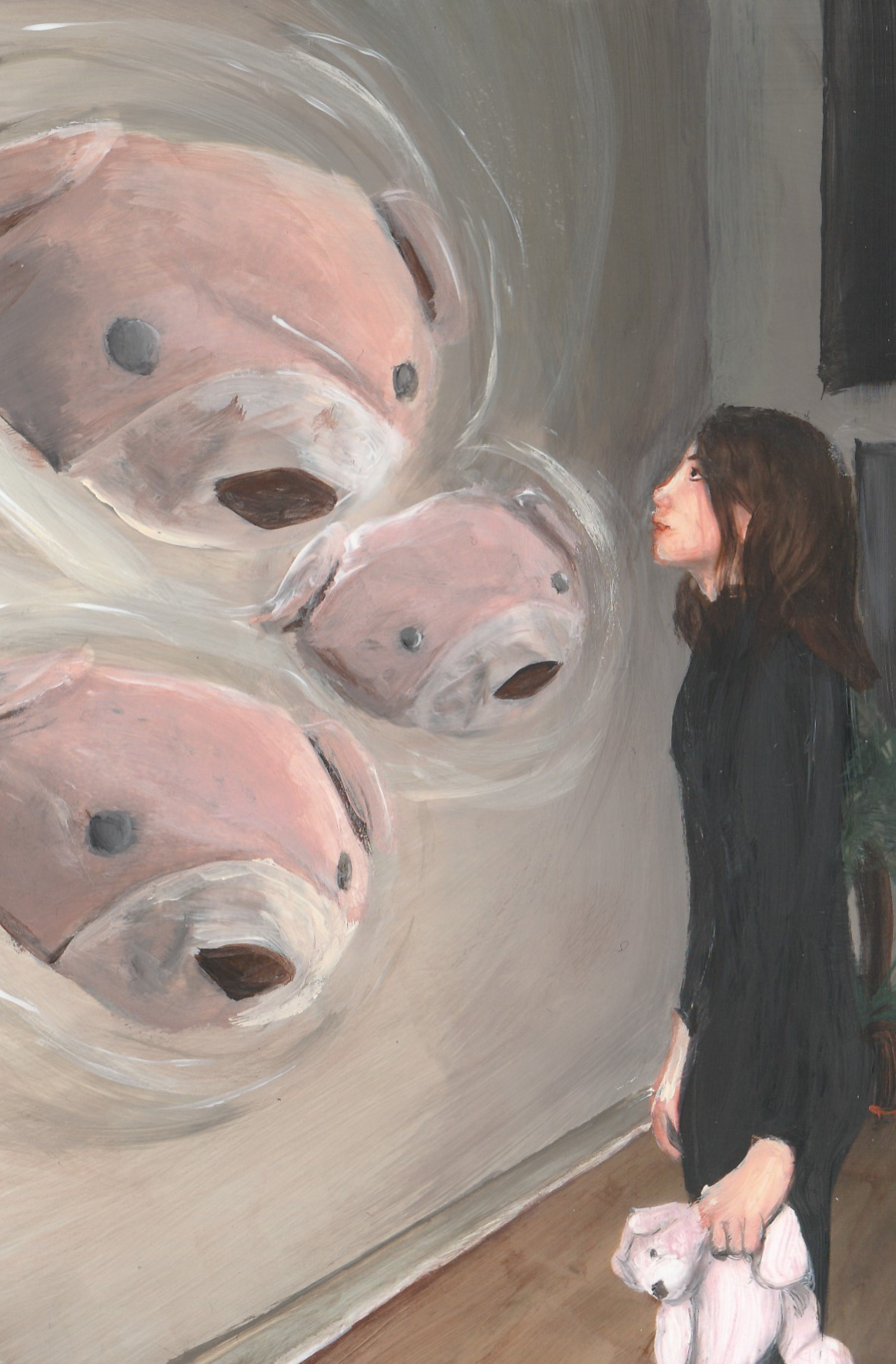
Zlatar. (2024). [series: my memories are coming for me] [acrylic, 4 x 6 inches, 10 pieces].
refuge for the oppressed body
series of 20 works. acrylic. 6x4” 2021-2022.
Whether ungendering is a form of protection against the perils of the external world or a way for internal refuge. Those with eating disorders seek the comfort of controlling their bodies. It may be a flawed attempt to exert some sort of agency in this world, but it should be noted. When the body has become violated perhaps the only way to cope is to build walls and protect one's self. It is not something that is inherently positive, but it helps people survive; it provides refuge. These works explore this concept of asylum through the body.

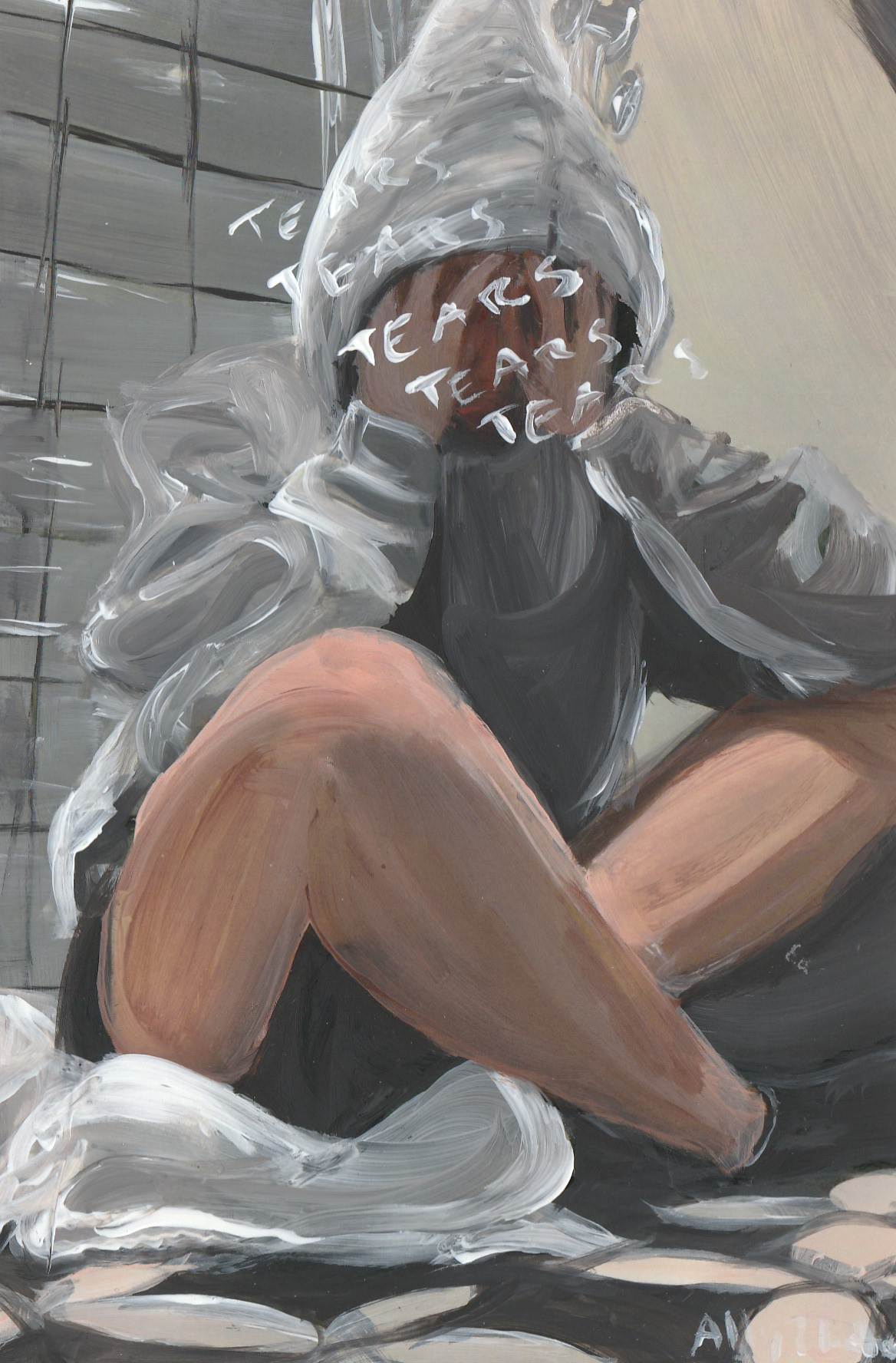
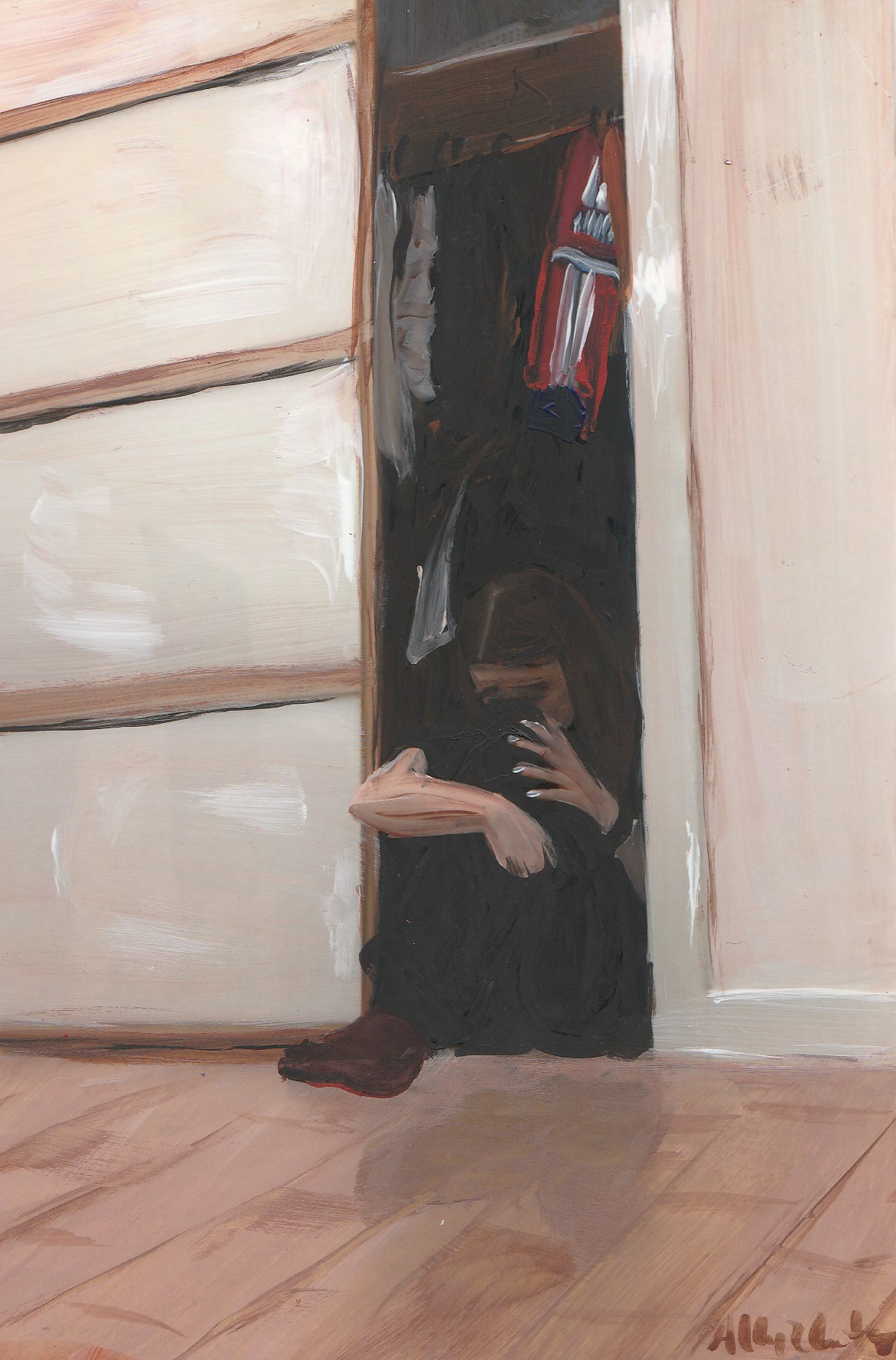

Ally Zlatar // allyzlatar@gmail.com // @allyzlatar
All rights reserved. Images may not be used without permission of the artist ©2026.
The images on this site may not be reproduced or downloaded.
All rights reserved. Images may not be used without permission of the artist ©2026.
The images on this site may not be reproduced or downloaded.
